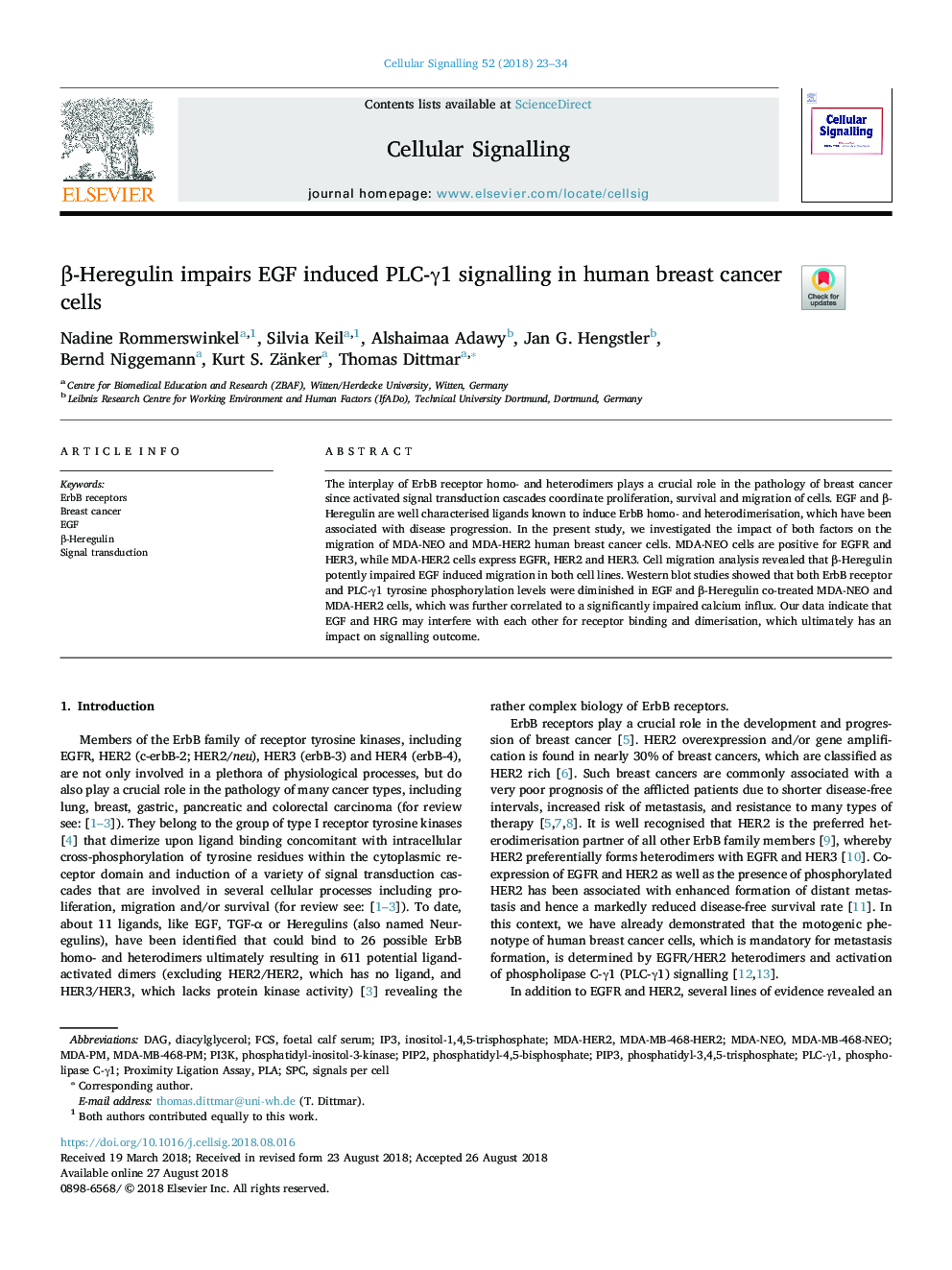| Article ID | Journal | Published Year | Pages | File Type |
|---|---|---|---|---|
| 8956040 | Cellular Signalling | 2018 | 12 Pages |
Abstract
The interplay of ErbB receptor homo- and heterodimers plays a crucial role in the pathology of breast cancer since activated signal transduction cascades coordinate proliferation, survival and migration of cells. EGF and β-Heregulin are well characterised ligands known to induce ErbB homo- and heterodimerisation, which have been associated with disease progression. In the present study, we investigated the impact of both factors on the migration of MDA-NEO and MDA-HER2 human breast cancer cells. MDA-NEO cells are positive for EGFR and HER3, while MDA-HER2 cells express EGFR, HER2 and HER3. Cell migration analysis revealed that β-Heregulin potently impaired EGF induced migration in both cell lines. Western blot studies showed that both ErbB receptor and PLC-γ1 tyrosine phosphorylation levels were diminished in EGF and β-Heregulin co-treated MDA-NEO and MDA-HER2 cells, which was further correlated to a significantly impaired calcium influx. Our data indicate that EGF and HRG may interfere with each other for receptor binding and dimerisation, which ultimately has an impact on signalling outcome.
Keywords
Related Topics
Life Sciences
Biochemistry, Genetics and Molecular Biology
Biochemistry
Authors
Nadine Rommerswinkel, Silvia Keil, Alshaimaa Adawy, Jan G. Hengstler, Bernd Niggemann, Kurt S. Zänker, Thomas Dittmar,
